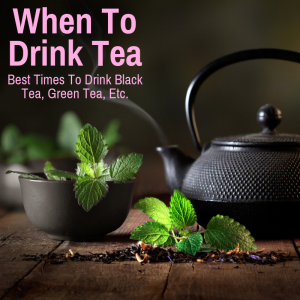 It’s a common question. But one that can be a bit confusing.
It’s a common question. But one that can be a bit confusing.
New tea drinkers often wonder when to drink tea. They generally mean what time of day is best.
But that question can also mean what time of year is best.
Or on what occasions. Or during which type of weather. Or at what point in life.
As a result, I’ve taken it upon myself to answer this question in every possible way. I also added a section on different types of teas and what types of situations call for each type.
Finally, I included some common related questions people have asked me in the past.
Table of Contents
- 1 When Is The Best Time To Drink Tea?
- 1.1 Best Time To Drink Black Tea, Green Tea Etc. During The Day
- 1.2 The Right Tea For The Right Time Of Year
- 1.3 Matching Teas To The Weather
- 1.4 The Tea We Love As We Grow Older
- 1.5 Should Anyone Avoid Drinking Tea?
- 1.6 How Often Can I Drink Tea?
- 1.7 Drink Tea After A Meal, Not Before
- 1.8 The Perfect Tea For Any Situation
- 2 Best Time To Drink Tea: Related Questions
- 3 When To Drink Tea: Final Thoughts
When Is The Best Time To Drink Tea?
As mentioned, this question could be taken a number of ways. It could mean when during the day, when during the year, on what occasions, when in life and so on. I tackle all the ways this question could be meant, so you’ll be sure to find the answer you seek.
Best Time To Drink Black Tea, Green Tea Etc. During The Day
Tea contains caffeine, which can increase your energy. It also supports the digestive system. For most people, their energy tends to be lower after meals and in the morning.
Based on that, it makes sense to drink tea right after a meal during the day. Most tea drinkers recommend doing so about fifteen to twenty minutes after a meal. There are also many benefits to having a cup of tea in the morning.
However, since many of your favorite teas do contain caffeine, drinking tea usually isn’t recommended after dinner.
But if you find yourself longing for a hot cup of tea after your evening meal, try switching to an herbal blend. Herbal teas, such as chamomile, can help you wind down after a long day at work and can even help to promote a better night’s rest. You could even add alcohol to your tea for a nice night cap.
If you’re not a fan of herbal teas and you’re really craving black, oolong, green, yellow or pu-erh tea, you can prepare the tea using cold water. Cold brew tea has significantly less caffeine than tea that is brewed hot.
Another option is houjicha. Houjicha is a Japanese green tea that is given to children in Japan due to its low caffeine content. This tea is roasted during production, which reduces the amount of caffeine considerably.
The Right Tea For The Right Time Of Year
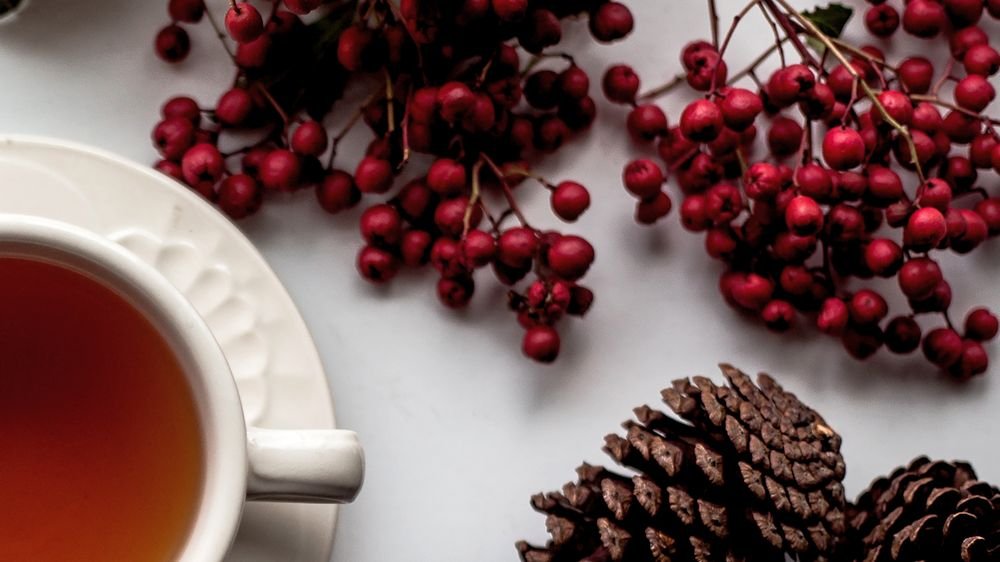
We’ve all seen the seasonal coffee drinks that come out every fall at our favorite coffee chain. But what about seasonal teas?
Is that even a thing? Is there a certain time of year you should be enjoying a specific type of tea?
If you purchase fresh loose-leaf tea, then it’s going to make more sense to just drink it while it’s fresh. Many people choose this option because fresh tea tends to have more nutrients and tastes better.
When you buy fresh green tea, it’ll have a shelf-life of four months, while oolong can last for six months and black can last an entire year.
Black tea has a longer shelf life because it’s fully oxidized, so it will last much longer than unoxidized teas. With a post-fermented tea like pu-erh, there’s no real urgency to drink it within a certain period of time, since it tends to taste better the longer it ages.
Matching Teas To The Weather
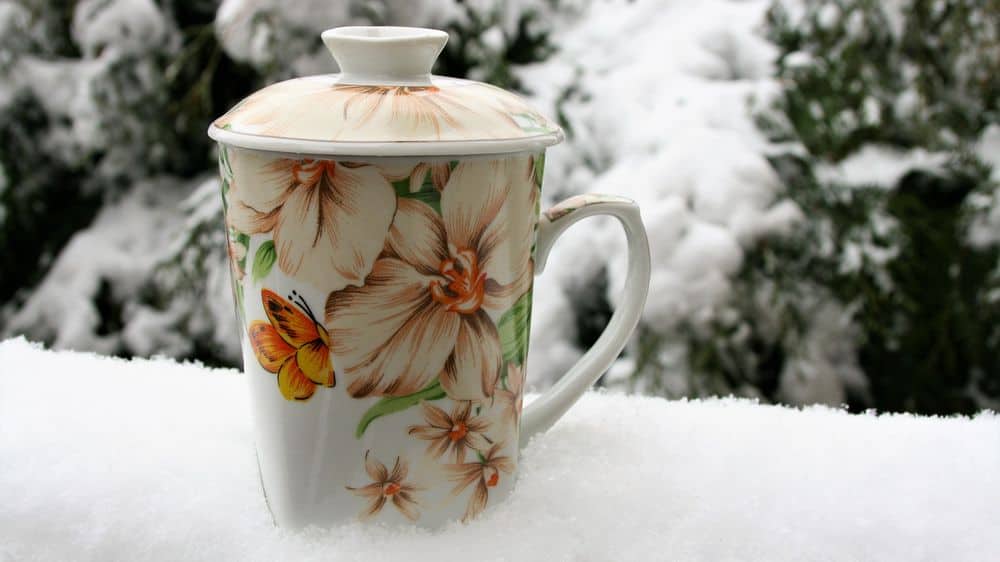
Matching teas to the weather is also a great idea. Do you want to drink a rich cup of hot black tea when it’s a hundred degrees out?
Probably not.
Instead, try matching the tea you’re drinking with the current weather conditions. White teas and other less oxidized teas offer a type of cooling effect, whether the tea is served hot or iced.
The cooling effects of white and green tea can help to balance the body against the hot weather conditions. This makes them both a great hot tea in summertime.
Once the weather starts turning a little colder, you may want to stick with teas that can help warm up your body. In colder weather, black tea is usually the best choice. If you love oolong teas, choose a darker blend.
The Tea We Love As We Grow Older
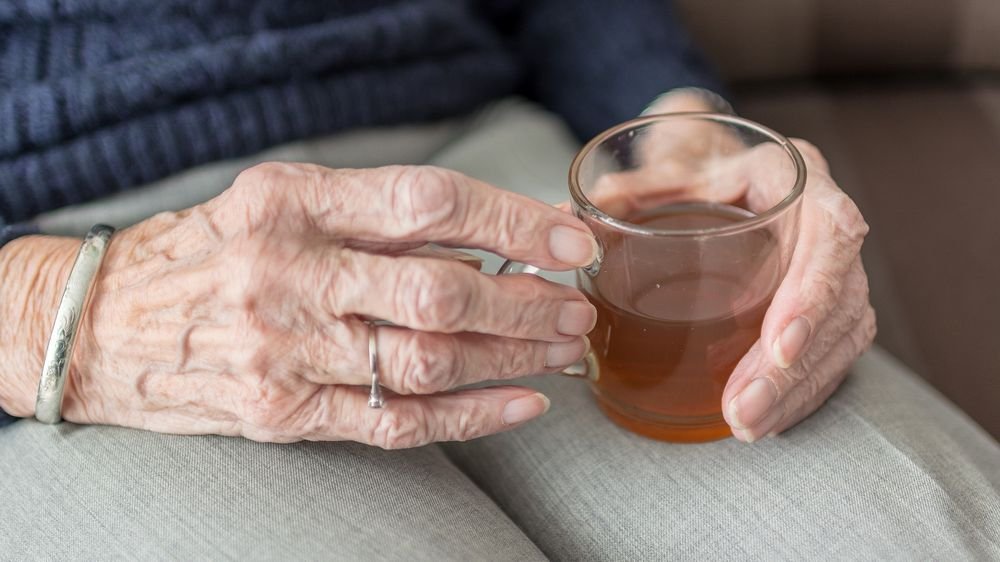
As we grow older, our skin isn’t quite as thick as it was in our twenties and thirties. Collagen production slows to a crawl and in many cases, the skin can become almost paper-thin. This is why we tend to be more sensitive to the cold in our old age.
Because of this, you’ll want to steer clear of drinking cold teas. You’ll also want to avoid teas made from young leaves, like white teas, many green teas and certain black teas (chiefly the needle teas).
These teas may also be too harsh for sensitive stomachs. Teas made from older, larger leaves are better, like most oolong teas, lapsang souchong black tea or melon seed green tea.
Should Anyone Avoid Drinking Tea?
For the most part, tea is perfectly safe to drink. However, there are some times when you’ll want to steer clear of it. This usually applies to children under the age of twelve, people who are extremely sensitive to caffeine, or in rare cases, pregnant women. Learn more about drinking tea when you’re expecting here.
How Often Can I Drink Tea?
Since tea contains caffeine, it’s best to avoid drinking it after three or four in the afternoon. However, if you’re drinking an herbal tea, then there’s no reason you can’t enjoy drinking it all day long. Most herbal teas contain less than 0.4 milligrams of caffeine.
If you’re drinking tea that’s loaded with caffeine, then try to stick to three cups a day max. If you’re still getting the craving for tea, then switch to an herbal blend after your third cup.
If you’re fasting you need to ask yourself: does tea break a fast? If you add sweeteners, it can. In that case you need to make sure you limit your tea consumption, so as not to exceed 50 calories. Without sweeteners, a cup of tea only has 1 to 3 calories, so you’re fine to drink as much as you want.
Drink Tea After A Meal, Not Before
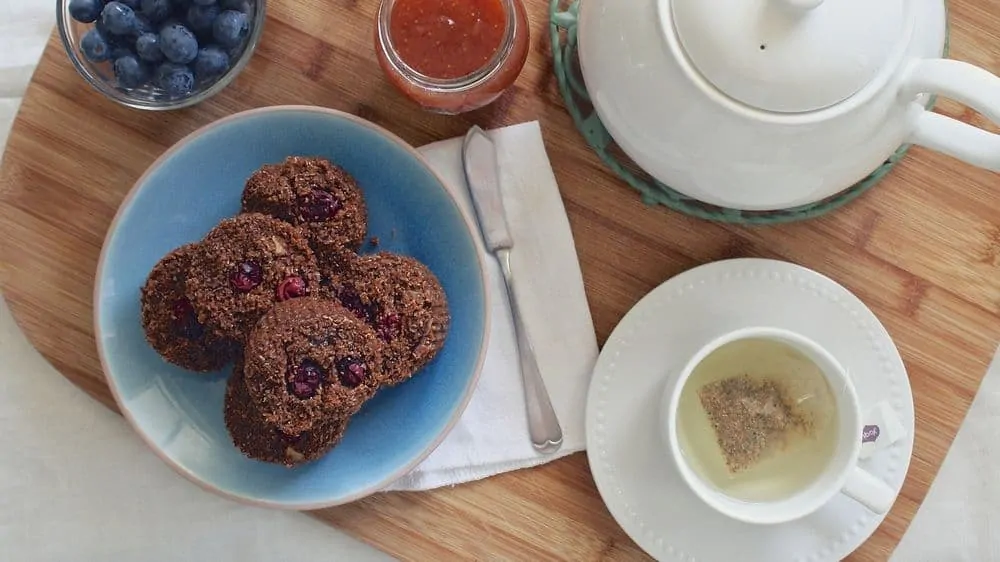
As I mentioned earlier, a nice cup of tea is always great after a meal. Drinking a cup of tea after you eat can help prevent an upset stomach, which can occur if you drink a caffeinated beverage on an empty stomach.
Additionally, many people believe that the high catechin content can have a negative impact on your liver if you drink tea on an empty stomach. That said, having tea after a meal isn’t all good. Tea can impact iron absorption. If you have anemia, do not drink tea with, or an hour or two after, any meals.
How to Maximize Nutrient Absorption
Drinking tea one to two hours before or after a meal can help to maximize nutrient and iron absorption. If you’ve been diagnosed with anemia, try to avoid tea with your meals since it can negatively impact the body’s ability to absorb iron.
The Perfect Tea For Any Situation
We’ve gone over what type of tea you should drink based on season, your age, and the time of day.
But is there the perfect tea to drink at the office, or one that can pump you up right before a workout?
There are teas you can choose from based on how you feel, where you’re at, or where you’re going, whether it’s the office or the gym.
Drinking tea before you work out is a great idea. Green tea can actually help you burn more fat, since most varieties have a high caffeine content. It can also help to safely boost your energy, allowing you to get in a more effective, longer workout.
Of course, if you have a high tolerance for caffeine and normally drink an energy drink beforehand, then tea isn’t really going to do much in terms of boosting your energy. But it’s definitely a much safer option than energy drinks and can be a great alternative if you’re trying to cut back on your caffeine intake.
Here are some other great teas to drink, along with the occasions for which they are especially well suited. Many of them are herbal teas. For more info on those, read my article on the best herbal tea brands. If you’re unsure of the difference between an herbal tea and a true tea, read my article discussing if green tea is an herbal tea.
Fennel
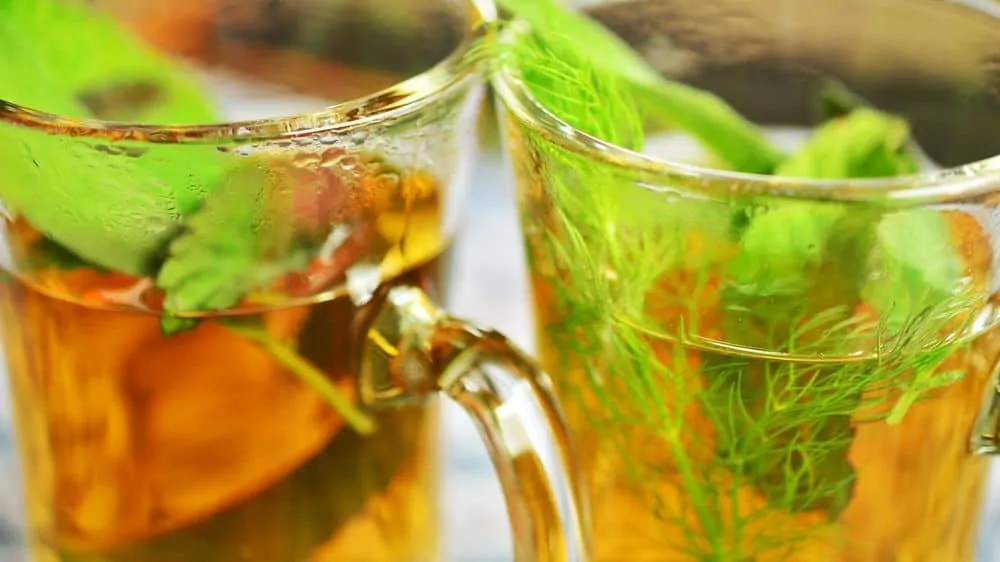
Tea right before a workout can be helpful in another way. Forcing yourself to hit the gym can be a mental battle of sorts.
Fortunately, the oils in fennel teas can help to balance the mood and allow you to focus your mind on the upcoming workout, preventing that pre-gym mental struggle. It will also improve mental clarity and give you a nice little boost of energy, so you’ll feel well-prepared for your time at the gym.
Ginseng
Primarily found in North America and Asia, ginseng is a root that has been used to improve concentration and focus for over two thousand years. Drink a cup of ginseng green tea in the morning or right before a big test to improve your focus.
Green
There are several health benefits linked to green tea. Many fitness enthusiasts claim it can aid in weight loss and can boost the metabolism, due to the high catechin content. Because of the heavy catechin load, it can also speed up the body’s fat-burning process.
If you’re not sure when to drink green tea: morning or night, I’ll make it easy for you. Avoid drinking green tea at night, since most varieties are high in caffeine. One that is low in caffeine is houjicha, so if you insist on drinking tea at night, make it houjicha.
Hibiscus
This type of tea is packed with flavonoids that help to reduce fat absorption. If you drink a cup of hibiscus tea right after a meal, it can prevent the body from holding onto any unwanted fats from your meal. Learn more about hibiscus tea in my article on herbal teas and their benefits.
Licorice
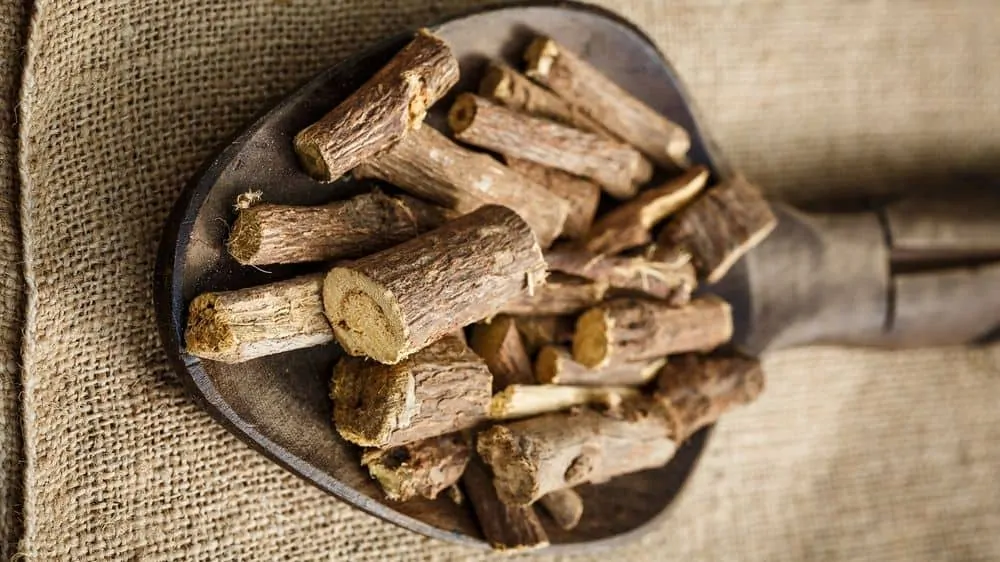
If you’re tired of your afternoon cup of coffee and you’re in need of a new way to get over your afternoon slump, then a cup of licorice tea may be just what you need.
The taste of this tea will have you floored, but it’s also the perfect tonic for the adrenal gland, allowing it to produce a nice, natural increase in energy.
Matcha
This tea offers almost endless health benefits. Drinking it daily can help to enhance your mood, boost your metabolism, and lower your cholesterol. It can also be the perfect way to start your day. One potential problem: it has the highest caffeine content of all teas.
Matcha is a green tea powder. Unlike most teas, where the leaves are steeped, but not consumed, matcha is made up of ground whole leaves. You consume the whole thing, when you drink matcha. As a powder, it also works great for cooking. Check out these 102 wonderful matcha recipes.
Oolong
This type of tea contains both theophylline and caffeine. Both of these components work well together to boost the metabolism, but can oolong really help you to lose weight? Not really. Not in the way you are generally led to believe. Read my article on the benefits of oolong tea for more.
Peppermint
Peppermint tea not only tastes refreshing, but it’s also the perfect tea to drink at the end of the day, or at a time when you’re feeling stressed. This tea is known to ease indigestion and discomfort, and can also help to relax the stomach muscles.
It’s also a great choice if you’re about to head into a meeting, or deal with any type of stressful situation, since it’s caffeine-free and won’t cause anxiety, increased stress, or the jitters.
Schizandra
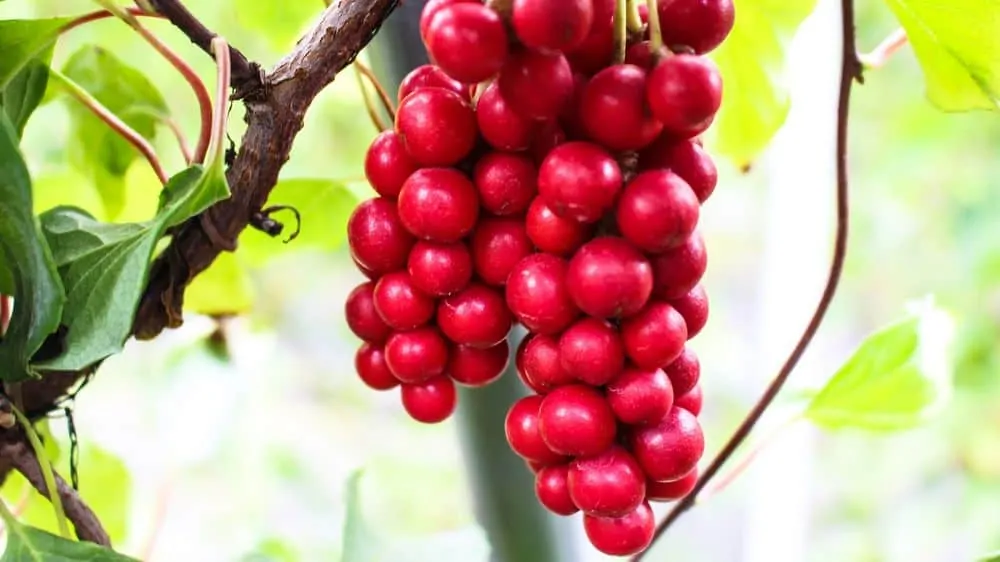
A great choice for the morning, this tea helps by boosting energy, detoxing the system, and stimulating the enzymes in the liver. If you’re starting a new diet and looking for a safe tea to try that’s low in calories and isn’t packed with caffeine like coffee, then Schizandra is a good option.
Best Time To Drink Tea: Related Questions
The following are some commonly asked questions. If you have additional questions, please feel free to ask them in the comments below. I read them all and answer any questions I get.
Best Time To Drink Oolong Tea?
You can enjoy oolong tea any time during the day, though I would avoid drinking it within a few hours of bed time. It generally contains lower amounts of caffeine that other types of tea, but it still has caffeine. Many people swear by having a cup after meals to aid in digestion and speed up metabolism.
Personally, I always choose a type of tea and then just drink that tea all day. So if it’s an oolong day, I drink it from morning until late afternoon, and often until just after dinner.
Drinking Black Tea At Night?
Drinking black tea at night is not a good idea, if caffeine inhibits your sleep, as it does for most of us. That said, the same is true of any tea made from the camellia sinensis plant, i.e. black tea, green tea, oolong tea, white tea, yellow tea and pu-erh tea. They all contain more or less similar amounts of caffeine.
Stick to herbal teas before bedtime, as they contain virtually no caffeine. Another option is to cold brew your tea, since that also results in a far lower caffeine content.
When To Drink Green Tea: Morning Or Night?
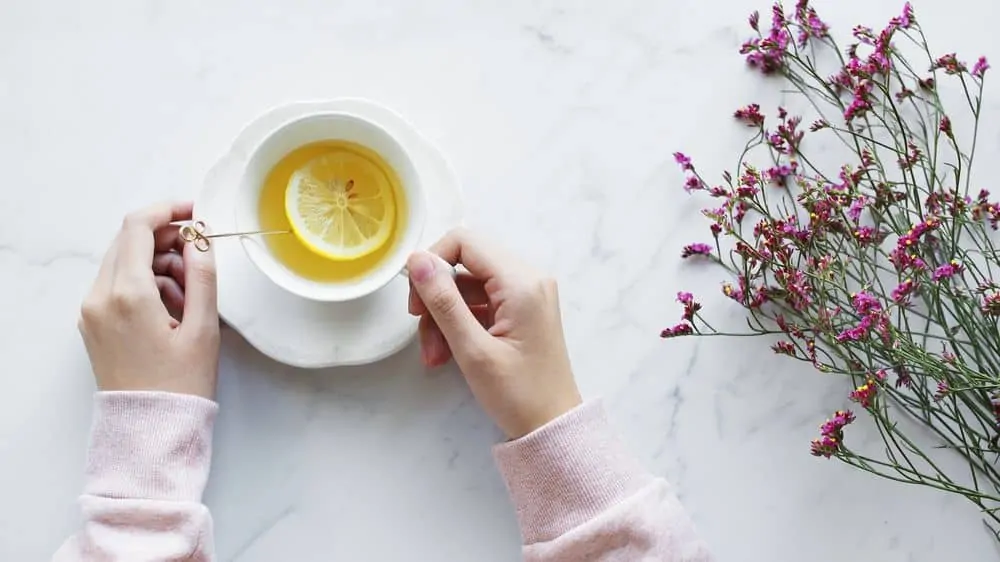
Most green tea is fairly high in caffeine, because it is made from younger leaves, which contain more caffeine. Melon seed tea (Lu’an gua pian) is an exception. It is made from mature leaves, which means less caffeine.
As mentioned previously houjicha is also lower in caffeine. In fact, it contains the least caffeine of any tea made from the tea plant (i.e. not herbal teas).
That said, even teas with a high caffeine content have far less of it than coffee. Drinking a small cup of green tea before bed has benefits that make it worth the small risk of it disturbing your sleep. Most people will have no problems, but those who are especially sensitive to caffeine might. It’s worth trying once to see.
As for drinking it in the morning, some people may suffer from gastrointestinal distress when drinking tea on an empty stomach. If you have a sensitive stomach, it may be a good idea to hold off drinking tea until you have had something to eat. Otherwise, it may make you gassy and cause bloating.
Best Time To Drink Chamomile Tea?
Chamomile tea contains no caffeine, so you can drink it anytime you like. It is commonly seen as a mild tranquilizer, so many people like to drink it before bedtime to help induce sleep. It is one of the best teas for helping you sleep.
Peppermint Tea Before Or After Meals?
You can drink peppermint tea anytime. If you are hoping it will aid in digestion or relieve bloating, then take it after you meals. But peppermint tea is also great just for relaxing, so you may also enjoy a cup in the afternoon, or at night before bed.
Can Tea Help Soothe An Upset Stomach?
Yes, both ginger and peppermint tea are commonly used to naturally treat an upset stomach. Ginger is often used by pregnant women who want to prevent or treat morning sickness.
There are certain teas that can cause an upset stomach, such as laxative or detox teas. If you’re drinking either type, make sure you follow the directions carefully and drink only in moderation.
Why is Green Tea So Popular?
There are many reasons why green tea seems to be the go-to for a large number of tea enthusiasts. But because some varieties have a mild, sweet flavor, it’s also a popular choice among people who don’t normally drink tea.
It tastes great iced or hot, is very versatile in terms of what you can add to it to switch up the flavor, and it doesn’t contain a lot of caffeine, which means it won’t leave you feeling anxious or jittery. If you’re just not a fan of green tea, but really want to enjoy the health benefits, read my article on how to make green tea taste good naturally. You could also try mixing black tea into your green tea.
When To Drink Tea: Final Thoughts
Knowing when to drink tea during the day and when not to can make all the difference in terms of the quality of your sleep and how you feel in the morning. You now also know which tea to choose based on the time of day, the season, and even the situation.
Basically, there are so many teas to choose from, you’re bound to find the perfect one for you. It doesn’t matter if you’re in need of a refreshing drink for the summer, a drink that can aid in weight loss, or one that can get you going first thing in the morning.
Whenever you feel like drinking tea, the right tea for that time, place, or occasion is out there.
This is an excellent guide for figuring out how to make the most of your daily cup of tea! Essentially, all “true teas” which come from the Camellia sinensis plant contain varying amounts of caffeine. Most herbal teas, on the other hand, do not.
This guide is awesome and exactly what i was looking for, thank you. Props to whoever gave/documented all this information in one place.
For me, tea is an incredibly beneficial beverage for mental health, especially in the morning. I really love reading this fascinating essay about tea. Regards for spreading it.